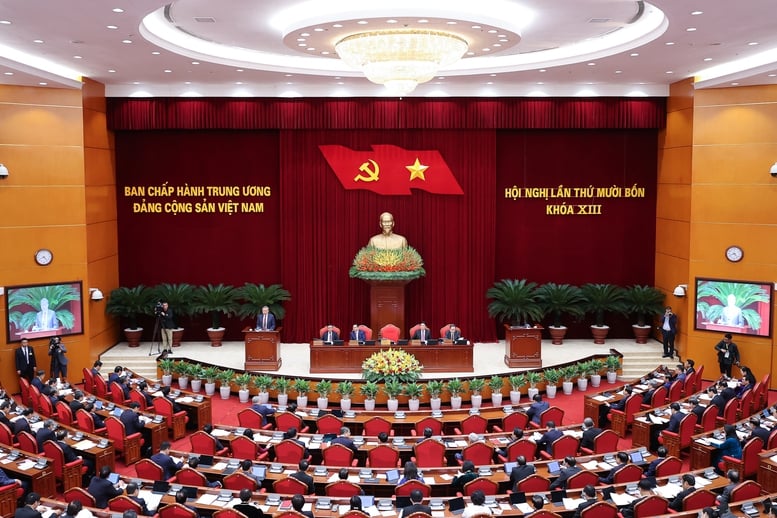 |
| Solemn opening of the 14th Conference of the 13th Party Central Committee - Photo: VGP/Nhat Bac |
The 14th meeting of the 13th Party Central Committee solemnly opened this morning (November 5) in Hanoi .
This conference focuses on two major contents: the group of issues on the work of the 14th National Party Congress and the group of issues on Party building and the political system. Each group of issues will have many specific contents, especially the group of issues on the preparation work for the 14th National Party Congress.
Select and recommend the most worthy among the worthy
Referring to the content of the work of preparing, selecting and introducing personnel to join the Politburo and Secretariat of the 14th term of the Party, in his opening speech at the Conference, General Secretary To Lam said that at the 13th Central Conference, based on the proposal of the Politburo, the 13th Party Central Committee voted unanimously, with high concentration, to introduce personnel to the 14th Party Central Committee (not including Politburo members and Secretariat members eligible for re-election and special cases) basically ensuring the structure, quantity, standards, conditions, areas and fields of work according to the Personnel Work Direction of the 14th Party Congress, the Party Election Regulations and the Operation Plan of the Personnel Subcommittee of the 14th Party Congress.
This is an extremely important foundation and experience for us to continue to inherit and promote in the work of preparing, selecting, and introducing personnel to participate in the Politburo, Secretariat, and key leadership personnel of the Party and State for the 14th term, 2026-2031.
At this Conference, the Central Executive Committee will give its opinion on the number of Politburo members and Secretariat members for the 14th Congress term and select personnel to be introduced to join the Politburo and Secretariat for the 14th term. This is a particularly important task, the core of the core because everything is decided by people. Selecting and introducing personnel to the highest leadership of the Party to lead the implementation of the very high and drastic goals of national development in the new period must be all the more thorough, certain, cautious and accurate.
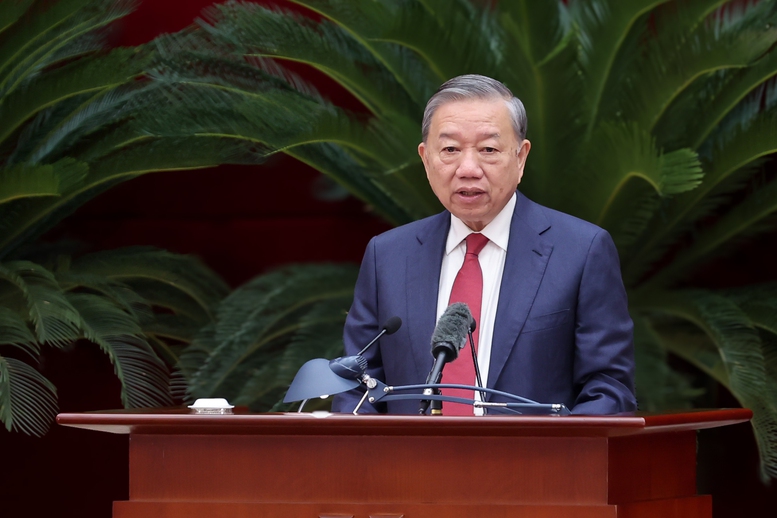 |
| General Secretary To Lam speaks at the Conference - Photo: VGP/Nhat Bac |
General Secretary To Lam said that, in addition to the selection criteria as prescribed for Central Committee members set out at the recent 12th and 13th Central Conferences, the selection and introduction of personnel to join the 14th Politburo and Secretariat needs to emphasize a number of important requirements suitable for the new revolutionary stage of our Party and our country.
In the context of fast-moving international situation, fierce strategic competition, and ever-changing global supply chains, the country requires simultaneous digital transformation, green transformation, and growth model transformation... to maintain sustainable double-digit growth for many years to achieve the two 100-year goals that our Party has set and the people expect, the Party's leadership role here is especially important.
Therefore, the responsibility of "choosing the right person for the right job", especially senior personnel, the country's leaders, is a prerequisite to turning vision and aspirations into results. It is necessary to select and introduce the most worthy people among those who are worthy to join the Politburo and the Secretariat. Those comrades must possess political mettle, integrity and ethics, set an example, put the interests of the nation and the people above all; must have a sharp strategic vision and organizational capacity to unlock bottlenecks, unblock resources, and gather strength.
More importantly, there must be organizational capacity for implementation: Design clear and specific goals, establish personal responsibilities, measure with data, and make decisions "to the end" with high public discipline. In the digital age, indispensable criteria are digital capacity and data thinking, in-depth understanding of digital economy, green economy, circular economy, risk management and the ability to coordinate across sectors, regions and levels.
Leaders need the ability to mobilize social resources, design public-private partnerships, create market trust; the ability to integrate internationally, foreign languages and a culture of dialogue to expand development space.
Particularly promote and value the quality, efficiency and dedication of cadres, giving priority to cadres with projects, plans and schemes that have a clear impact; have the capacity to handle situations in crisis (natural disasters, epidemics, finance, non-traditional security); be decisive but know how to listen to criticism, rely on the people, for the people.
The selected person is the one who is most suitable for the development goals in the new period, has high reliability, can withstand pressure, has the will to reform, convert resources into driving force, and turn potential into double-digit economic growth rate so that the country can reach the 2 100-year goals.
In summary, General Secretary To Lam stated: In addition to the general standards that are thoroughly understood and stated in the Party's regulations, in selecting and introducing personnel to join the Politburo and Secretariat of the 14th term, special attention should be paid to 5 "plus points", which are: (1) Having a national strategic vision, having the ability to maintain the country's autonomy. (2) Having the capacity to lead and command on a national scale. (3) Having political prestige and integrity at a symbolic level for everyone to follow and learn from. (4) Having the ability to implement the Resolution into measurable results and achievements. (5) Having enough endurance, both mentally and physically, to withstand the pressure and intensity of work in the 14th term and possibly the following terms.
Handling many difficult, complex, outstanding, and long-standing problems
Regarding the report reviewing the leadership and direction of the 13th Party Central Committee presented to the 14th Party Congress, General Secretary To Lam said that immediately after the 13th Party Congress, the Party Central Committee, the Politburo, and the Secretariat urgently led and directed the research, dissemination, and implementation of the Congress Resolution with many new, methodical, scientific, and effective approaches.
Timely review and give policies to handle many difficult, complicated, pending, and long-standing issues, to unlock resources for national development, especially socio-economic development. Lead and direct national defense, security, and foreign affairs; work on building and rectifying the Party and the political system. Strictly implement the Party's principles, constantly innovate leadership methods, working styles and ways...
Looking back at the 13th term, we have maintained our strategic orientation; persistently built and rectified the Party; promoted institutional improvement; steadfastly maintained macroeconomic stability; promoted digital transformation and green transformation; consolidated national defense and security; expanded foreign relations and deeply integrated.
Many major policies have been institutionalized, many bottlenecks have been removed, and many breakthrough decisions have been implemented. We have accomplished things that can be considered miracles.
However, with the spirit of self-reflection and self-correction, General Secretary To Lam stated: Comrades also need to contribute ideas so that the 14th Central Committee can overcome limitations and shortcomings such as: Some policies are slow to come into life, there are still outstanding guiding documents, and the implementation is not uniform; decentralization and delegation of power are not really smooth, vertical and horizontal connectivity is not smooth, accountability is not clear in some places; the organizational apparatus is streamlined in some places but not coupled with improving effectiveness and efficiency; "bottlenecks" in land, capital markets, skilled labor... have not been completely resolved; preventing and combating corruption, waste, and negativity have achieved many results, but early and remote prevention work needs to be more drastic; policy communication has not met the "correct-sufficient-timely" requirements, and public trust is sometimes and in some places challenged.
Ensuring connectivity and complementarity of three-level government
Regarding the summary of Resolution 18-NQ/TW dated October 25, 2017 of the 12th Central Executive Committee on a number of issues on continuing to innovate and reorganize the apparatus of the political system to be streamlined, effective and efficient, General Secretary To Lam said that after 8 years of implementing Resolution 18, especially from 2024 to present, we have achieved many important results. The apparatus in the entire political system, from the Central to local levels, has been streamlined, with clear functions and responsibilities, reducing intermediate levels; streamlining the payroll associated with improving the quality of the contingent of cadres, civil servants and public employees; the activities of Party, State, Fatherland Front and socio-political organizations are increasingly effective and efficient.
Seriously implementing lessons learned from the summary of Resolution 18 is of key significance in transforming the political system from "cumbersome - scattered" to "streamlined - connected - effective - efficient", especially when we organize a 2-level local government model and open up new development space after rearranging administrative boundaries at the provincial and communal levels.
This is the fundamental condition to maintain stability, development, ensure modern national governance, promote rapid and sustainable growth, improve people's quality of life, and move towards the goal of "rich people, strong country, democracy, fairness, civilization", and a powerful, prosperous, and everlasting nation.
In terms of meaning, the summary shows that it is necessary to shift from the mindset of "administrative management" to "functional-result management"; reduce intermediate levels, clarify authority and responsibility, "one task - one presiding agency - one responsible person", and strongly link decentralization with a transparent power control mechanism.
In terms of importance, the two-tier local government model helps the provincial level focus on strategy, planning, inter-regional coordination and high-level public services, while the commune level stays close to the people and quickly resolves daily needs; when administrative boundaries are rearranged, we have the opportunity to restructure the urban-rural network, form growth poles, economic corridors, exploit larger market sizes and reduce transaction costs for businesses and people.
In terms of practical value, the proven lessons include: Standardizing processes and data, connecting national databases, operating "one-stop shop - one standard - one declaration", measuring by the satisfaction of people and businesses. If done so, the 2-level local government model and new development space will become institutional levers, converting resources into driving forces, turning potential into high and sustainable growth, contributing to realizing the 100-year goals in a volatile regional and world order.
In order for the 2-level local government model to be most effective, it is necessary to ensure the connectivity and complementarity of the 3-level government (Central - Province/City - Commune/Ward) along three axes: Institutions - Resources - Data. In that interconnected structure, the Central government plays the role of managing, creating and ensuring unity throughout the system.
When the three levels of government operate as a whole, with the central government setting standards and coordinating inter-regionally; the provincial level organizing strategies, allocating resources, and monitoring results; and the grassroots level directly serving, quickly resolving, and responding to real-world data, the goals of maintaining peace and stability, promoting rapid but sustainable growth, and improving welfare will have a solid foundation.
"In conclusion, implementing the lessons learned from Resolution 18 according to the model of a two-level, three-level interconnected local government, with the Central Government as the 'institutional architect', will be the decisive lever for a streamlined, transparent and effective political system, thereby bringing the country to rapid and steady progress towards strength, prosperity, and a happy and prosperous people," General Secretary To Lam said.
At the same time, it is expected that the 14th Central Conference will create a very high consensus on: Development vision and strategic orientations to be presented to the 14th Congress; The list of personnel recommended to join the Politburo and Secretariat is truly exemplary, ensuring inheritance and breakthrough; the institutional framework for a streamlined, effective, efficient apparatus, modern governance based on data, decentralization, delegation of power coupled with power control; the implementation mechanism has clear people, clear work, clear deadlines, clear resources, clear accountability.
"Our country is facing a historic opportunity to make a breakthrough, while also facing many unprecedented challenges. To maintain peace, stability, rapid and sustainable development, so that the people are truly prosperous and happy, and so that the country becomes increasingly strong and prosperous, we must make the right decisions and carry out the important tasks set forth by the Central Executive Committee. Each opinion expressed today not only contributes to this Conference but also lays the foundation for a new term, creating momentum for an entire development period," General Secretary To Lam expressed.
Source: https://huengaynay.vn/chinh-tri-xa-hoi/xay-dung-dang/lua-chon-nhan-su-gioi-thieu-tham-gia-bo-chinh-tri-ban-bi-thu-khoa-xiv-159622.html






![[Photo] Opening of the 14th Conference of the 13th Party Central Committee](https://vphoto.vietnam.vn/thumb/1200x675/vietnam/resource/IMAGE/2025/11/05/1762310995216_a5-bnd-5742-5255-jpg.webp)


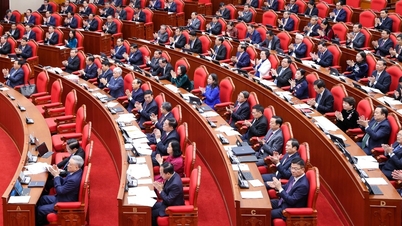

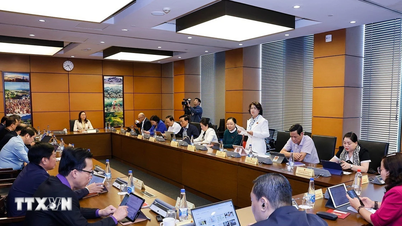


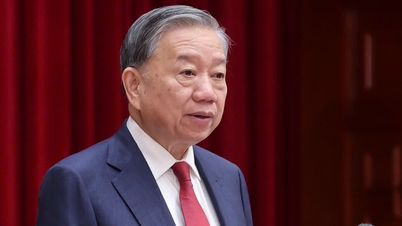
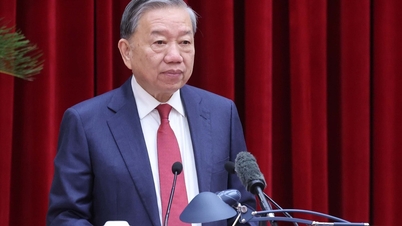
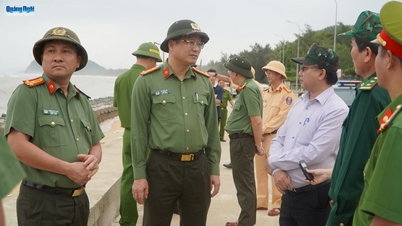

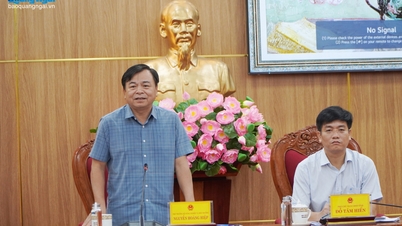
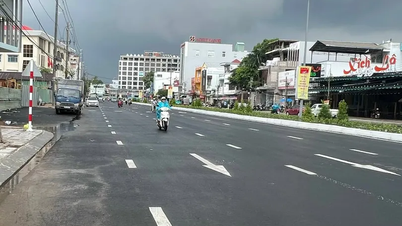

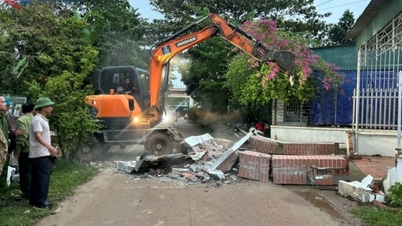

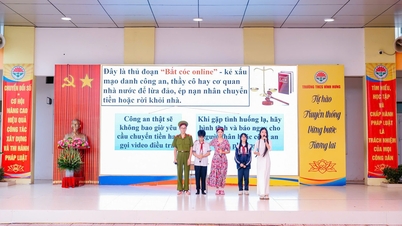
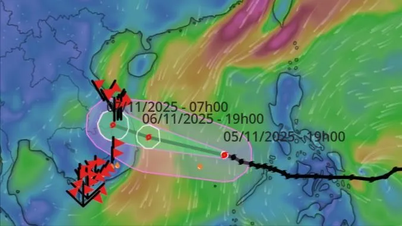





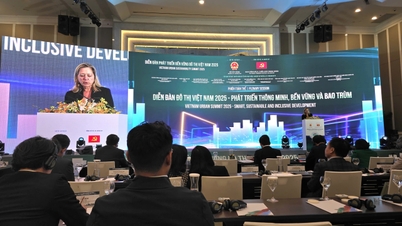
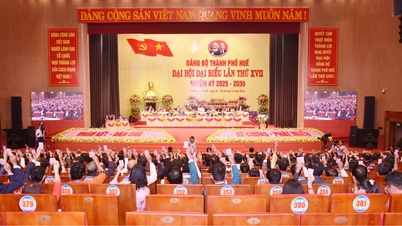
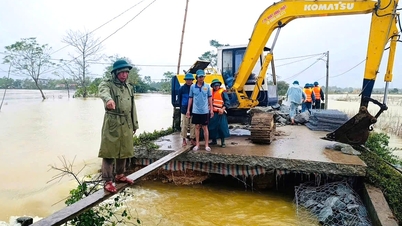

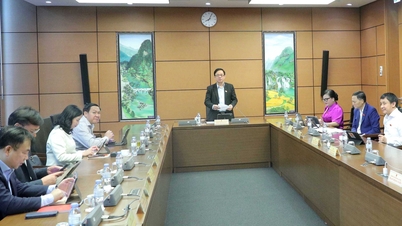

![[Photo] Panorama of the Patriotic Emulation Congress of Nhan Dan Newspaper for the period 2025-2030](https://vphoto.vietnam.vn/thumb/1200x675/vietnam/resource/IMAGE/2025/11/04/1762252775462_ndo_br_dhthiduayeuncbaond-6125-jpg.webp)


































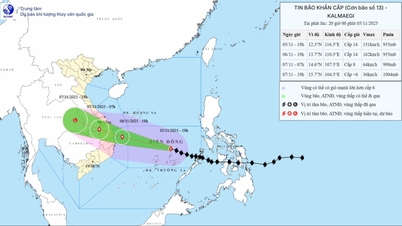
















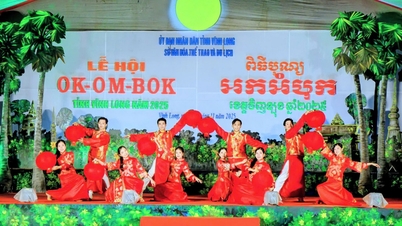

















Comment (0)